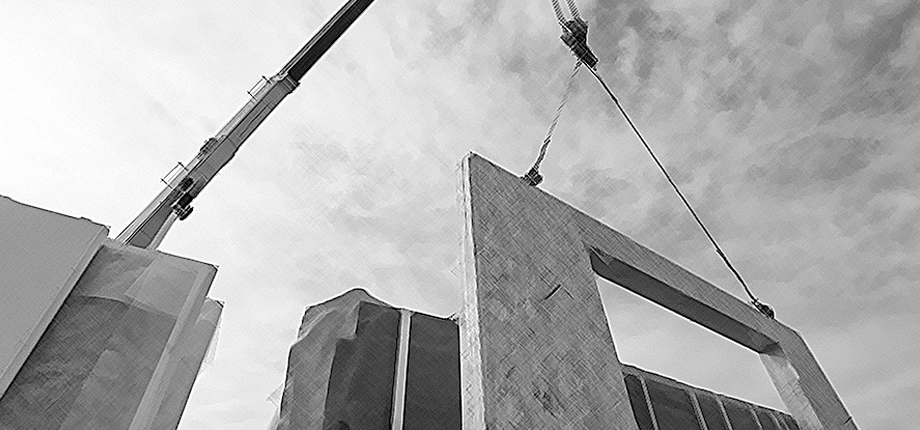According to the housing white paper published earlier this year, the Government intends to utilise offsite technologies and build around 100,000 modular homes across Britain by 2020. This call for a quick and sustainable solution to the current housing shortage has created a unique opportunity for offsite construction to become a key building method to meet the demand in the housing industry.
The UK finds itself in the midst of an acute housing crisis. Current annual construction levels are typically less than half of the estimated 250,000 new homes this country needs built every year through to at least the 2030s. With only 63% of projects delivered on time and only 49% delivered to budget, it’s clear to see that traditional building practices, whilst still integral, are falling short of meeting major challenges on their own.

Into the ring steps a plucky underdog - offsite construction! Offsite and modular technologies have advanced greatly in recent years. Prefabricated home have actually been around for decades; however, what was once a rushed post-war method of providing much needed housing has now evolved into something that can offer shorter build times, better quality, better energy efficiency, less waste, and lower costs for buyers. Following the surge in demand for homes in late 2013 and early 2014 and a subsequent decrease in availability of traditional materials such as bricks, it is only now that its benefits of offsite are truly being recognised.
Time and money
The rapid delivery of recent offsite projects (sometimes as quickly as 48 hours for some modular homes) has made the construction method a very interesting and viable option for ministers in tackling the shortage of housing in the UK and meet targets. The first and most obvious advantage is speeding up the building of housing. There is pretty good evidence that if you did it at scale it is cheaper.
Greater control
In terms of the construction process, modular building and offsite construction provides specifiers with programme certainty and quality though simplification of site operations. Whilst also reducing weather dependencies due to the controlled factory-based assembly process. The ancillary benefit of this is that buildings delivered through offsite construction offer enhanced specification standards and build-quality which reduces occupancy costs related to energy use, defects and repairs.
Constructed offsite, under controlled plant conditions, using the same materials and designing to the same codes and standards as conventionally built facilities, projects can be completed in about half the time. The finished modules are transported and put together on site.
As a nation we need affordable, well designed and energy efficient homes that address the significant issues of fuel poverty and climate change. Sustainable building methods and renewable energy are pivotal in delivering a sustainable solution.
Energy efficiency
Housebuilders are now rightly expected to create sustainable and energy efficient homes as part of the greater effort to reduce CO2 emissions, energy consumption and waste as an industry. As such, environmental considerations will transform how our buildings are constructed, what materials are used and which methods are employed. Heat pumps, for example, are one such technology that can work in conjunction with modular techniques to immediately help alleviate fuel poverty. By extracting renewable energy from outdoor air, the system maximises the energy provided to the household and can offer a reduction in run costs; studies suggest by up to as much as 10% of the UK national average.
Heat pumps are sustainable, because the heat they harvest from the air is renewed naturally every day by the sun. They can help lower fuel bills, especially over direct electric, oil and LPG and potentially provide a quarterly income for the landlord through the government’s Renewable Heat Incentive.
The use of air source Heat heat pumps is growing year on year and they are able to offer tangible benefits to those who specify them, with the initial outlay ultimately paid for through energy savings over time as well as through RHI payments.
In summary
The construction sector is cleaning up its act and the time is right for the construction industry to embrace renewable technology and offsite techniques. We must work closely with one another in developing better buildings at a rapid rate to enhance lives, minimise the environmental impact and reduce energy costs for occupants for many years to come.
This and other articles by Housing Association’s Joe Bradbury also appear on http://thehub.mitsubishielectric.co.uk, which contains useful and informative articles on legislation, buildings, energy use and the environment.
- Log in to post comments















